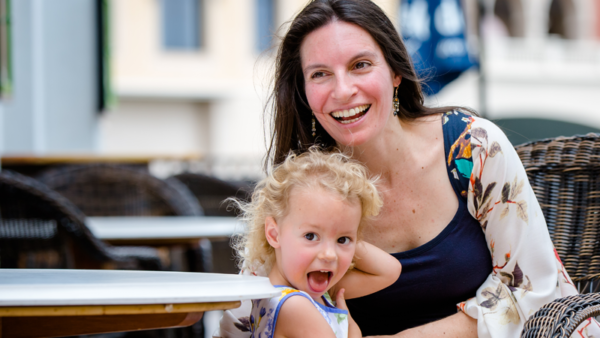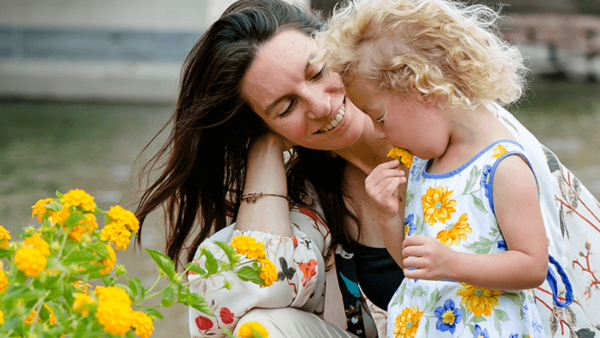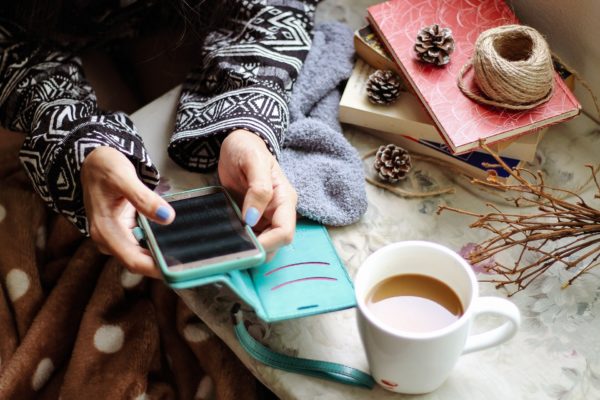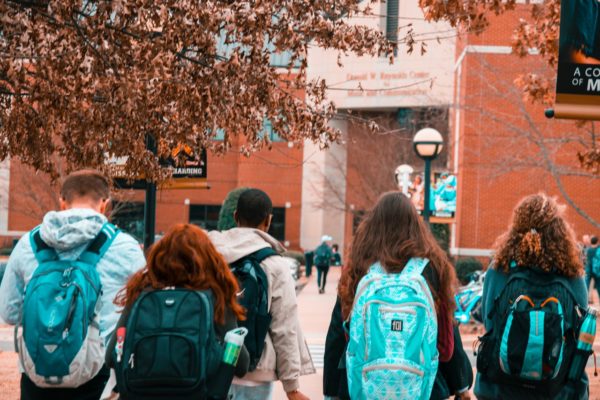While the stages of childhood are often discussed, no one ever clearly presented to me the stages of adulthood. That’s something I’ve pieced together here and there, but wow, it would have been nice to know from the start.
This is something I’ll definitely teach my daughter. She sees that adults get to buy candy whenever they want, go to bed whenever they want, watch as many movies as they want, and so on. She thinks that to be an adult is to be completely free. She doesn’t yet understand the tradeoffs between freedom and responsibility, nor the developmental milestones adults go through.
Like me, I bet no one ever explained this to you, and that understanding the full arc could be a bit of a revelation.
Adolescence
The first traces of adulthood begin in adolescence. Bodies mature, the arousal system comes online, and kids push adults away hard in an attempt to individuate. The task in adolescence is to learn to take care of oneself: to learn who you are, what you need, how to maintain balance physically and socially.
Because they’re learning how to do that, adolescents are not ready to take care of themselves independently, much less anyone else, so we curtail their freedoms. They don’t get to drive or vote because they’re not yet responsible enough to consistently consider other people. They don’t get to have sex with whomever they choose – age of consent laws require abstinence or only engaging with another of similar age. They don’t get to impair their judgement with alcohol, tobacco, or marajuana.
We supervise, make all kinds of laws and rules, and slowly ease those restrictions as they mature.
Young Adulthood
In our 20’s, we learn to balance taking care of ourselves physically and socially with having a job. For the first time, we try to establish a work-life balance. We learn how to do the work, what’s expected from us by our supervisors and colleagues, and what we need to do in the off hours to make it all sustainable.
We try on partnership, and we learn a ton about ourselves and others as we try to communicate and balance another’s needs with our own.
Adulthood
Adulthood is about more than independence. I’d say that you’re truly an adult when you have the capacity to take care of yourself and others. That’s the benchmark.
It means building all kinds of slack into your life. You need not just a stable income, but extra money. You need not just a place for yourself to live, but room for others. You need not just the emotional stability to weather your own challenges, but extra capacity to help another with theirs. You need not just enough time for yourself, but extra time and energy to care for someone else.
An adult is someone who provides. The “adult” who spends instead of saves, neglects instead of maintains, destroys instead of builds, is someone others will have to take care of. They draw down on the capacity of the system instead of adding to it. They might have the best of intentions, but they simply aren’t creating reserves for others.
There are many people who are adults in terms of their age but lack this maturity. These people drag on their friends, partners, and coworkers.
Our task is not just to achieve adulthood ourselves, but gauge it in others. We must choose friends and partners who are adults. We must choose which family members to be close to. When we don’t, we find our surplus drained. It is healthy and totally ok to distance yourself from the vampires. Yes, they want your help, but you do not owe it to them.
When we see friends or family making errors here, we must speak up and share our concerns about the relationships they’re investing in. If they’re investing their time and energy into a friend or partner who isn’t truly an adult, who doesn’t have capacity to take care of them, they need our help to see it.
Beyond Adulthood
Those of us who have decided to have families are caring for our children, raising the next generation. Those of us who never achieved adulthood continue to struggle with that challenge. Those of us who realize we’re tied to vampires disentangle ourselves. Sometimes it’s all three at once.
As teens we often pick a passion project: environmentalism, human rights, poverty, education, ending discrimination. This is a hobby for teens, but in our 40’s and beyond, it becomes our responsibility.
The adults teach the young what to cherish, how to care and maintain, how to navigate a system. We pay more attention to politics. We shape the systems, giving money, time, and expertise, thinking more and more about the nuances of the big picture.
Explaining the arc to kids
I wish someone had laid all this out for me. I have been unsure how much leeway to give others, unclear about how much I could or should expect from them.
I realize now that the arc of adulthood is a bit taboo, something we don’t talk about in an attempt to get along with everyone. We’re afraid of being judgy, so we revert to silence or expansive acceptance. Everyone is doing their best, right? Yes, but leaving it at that also leaves kids in the dark.
The simplest thing you can do, even with a young child, is define the terms.
- An adolescent is someone who is learning to take care of themselves.
- A young adult is someone who is learning how to work and take care of themselves at the same time.
- An adult is someone who takes care of themselves, has a career, and has the capacity to take care of others.
Having these terms defined helps kids recognize red flags. The adult who grooms a child by asking for special favors is not playing the role of provider. They are asking the child to take care of them instead of the other way around.
Once the terms have been defined, the standards will be questioned. We’ll have to explain why it is harder for one group or another to reach the benchmark, the nuances of why a person might be old enough to be an adult but not actually able to care for themselves and others. We’ll have to talk about poverty and systemic racism and injustice in all its forms. We’ll have to help our truth-telling children avoid social gaffs like telling Uncle Joe that he might be old enough to be an adult, but he’s really still an adolescent. These are the thousands of one-minute conversations that will shape your child’s understanding of the world and their expectations of themselves and others.
Or I suppose you could avoid all that and let them muddle through, but if you think it’s important to talk with your kids about sex and relationships, I think you’ll agree that this is a helpful piece in the Relationships category.
How does all this land? Please comment below!
In support of you,
Anya
P.S. I’m receiving webinar requests! If you’d like me to present to your parent group, click here.









5 Comments. Leave new
I love this! It’s so helpful to look at the adult role in particular, and how to spot someone you perhaps want to avoid. I also wish I’d been aware of this in my 20s! I would however question the kid-friendly definition of adult as someone ‘with a career’ – this can be such a loaded statement and there are many, many adults who do everything else that defines them but don’t have a recognisable ‘career’. Whoever defined motherhood as a career for example?! The word career seems to go with qualifications, salary and a successful progression. Is there another way to define this without this term?
Emily, I hear you, and I think you’ll have to find the term which feels best for you. If it’s not career, what do you think captures the idea? That an adult is doing their life’s work? That they’re financially healthy? that they’ve found their purpose?
So helpful as always. Thank you!
I love this, Anya! When I was facilitating women’s wellness circles, one of the most profound concepts was the concept of the lifecycle of a woman. Culturally, we glorify certain stages and have a difficult time embracing others. This is reflected in the experiences of individual women, and this acknowledgement of the trajectory and the strength and beauty if each stage was profound for the women in circle. Here are the stages (from a set of prayer flags that I bought years ago): divine girl child, blessed maiden, sacred mother, wise one, holy old woman, beloved earth. I gave a set of these prayer flags to my daughter when she was 6 or 7. I hope it will allow her to embrace the journey in a way many of us have a difficult time doing. I’m excited to also share with her what you’ve shared here, and think about the overlap. <3
This is helpful for me as I review my role as a parent of a 15 year old boy and help him navigate his first love. I feel almost more responsible to his girlfriend as I figure out my job as a “container” for the individual yet shared metamorphosis of these two individuals – -to protect the turning of these humans into adults, hold what’s true in view and listen, but not roll out the red carpet for risky behaviors in my home. So often parents are told “they’re gonna do it anyway” regarding adult activities that teens find curious. I’m learning that I can be a safe place with boundaries that honor the path of adolescence, while providing clear rules for my teens to push against. Rather than turning a bind eye to risky teen experimentation or trying to be a friend, I can be a safe adult who stands and watches with guidance in the same way I did in the toddler years. I really wish there were more resources out there for parents on how to be a healthy guide during the very loaded chapter of teen sexuality in early adolescence—with nuanced insight on different messages across genders, and the pressure kids feel to advance sexually to secure a relationship. It’s confusing to know how to parent when teens are not seen as mature enough to understand/give consent for sex or astute enough vote, yet society fully encumbers them with cultural pressures of adult achievements and “performance.”
This article helps me find my footing as a parent of an adolescent boy. I always come back to you when I’m stumped, Anya. ✨ Thank you!